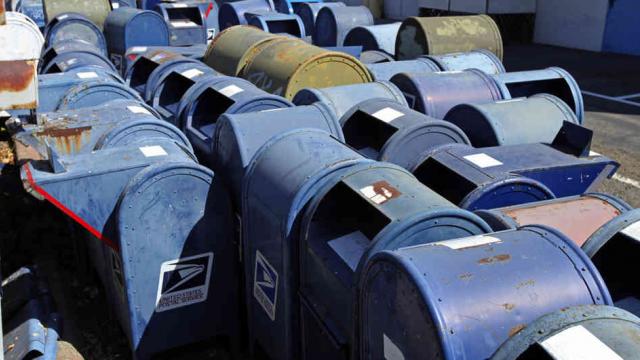
When Lansing, Michigan Mayor Virg Bernero introduces two resolutions in support of expansion of United States Postal Service services at the 2014 U.S. Conference of Mayors annual meeting in Dallas in two weeks, he'll have the support of co-sponsors Mayor Paul Soglin of Madison, Wis., and Mayor Jean Quan of Oakland, Calif.
Bernero, who chairs the USCM's Advanced Manufacturing Task Force, submitted the resolutions several weeks ago. They represent cutting edge ideas advanced by some of America's most forward-thinking policymakers and analysts. Elizabeth Warren proposed non-banking financial services at the beginning of the year (based on the recommendations of the U.S.P.S. Inspector General), while public banking activists and postal experts have long suggested a postal infrastructure bank that could re-build America's infrastructure at a fraction of the interest costs levied by private financiers.
"Our nation's mayors are acutely aware of the impact of predatory lending, 'banking deserts,' and the potential loss of postal services in American cities and towns," said Marc Armstrong, president of BankACT, a nonpartisan group campaigning for postal banking legislation at the federal level and public banks at the state and local level.
Many Americans are asking 'what if we had a banking system that is not based on profits?' Credit unions are small step in this direction – postal banking helps to complete the picture."
According to the U.S.P.S. Inspector General's report, using postal financial services rather than payday lenders could save working people as much as $80 billion per year. The report proposes that America’s 30,000 post offices provide basic, low-cost financial services primarily to low-income workers and retirees. For instance, a five-month $375 loan typically costing $520 in interest and fees could be profitably provided by the post office for $48.
Frederic V. Rolando, president of the National Association of Letter Carriers, proposed a postal infrastructure bank last year, arguing that it "would provide a means to channel public funds into regional and national projects identified by political and community leaders across the country to keep the economy healthy," Rolando said.
"It could issue bonds, back public-private partnerships and guarantee long-term, low-interest loans to states and investment groups willing to rebuild our schools, hospitals, airports and energy grids." He added that such an infrastructure bank could be implemented without taxpayer funds.
BankACT is presently hosting weekly discussions regarding the two U.S.C.M. resolutions via conference call, occurring at 3:00 PM EDT every Wednesday between now and June 18. Those wishing to attend the discussions can register at this conference site. Meanwhile, Armstrong said, BankACT is continuing to contact individual mayors and urging them to sign on as sponsors and supporters of the resolutions. "These are the folks whose fingers are on the pulse of the real economy, the working economy," he said.
Originally published by Bank Act
*Meanwhile, David Dayen writes, that the U.S. Postal Service Postal has long resisted offering banking services – and with companies like T-Mobile, Walmart and Google now stepping in to fill the need, it's the moment for the U.S.P.S. to act or get left behind.
3 WAYS TO SHOW YOUR SUPPORT
- Log in to post comments














